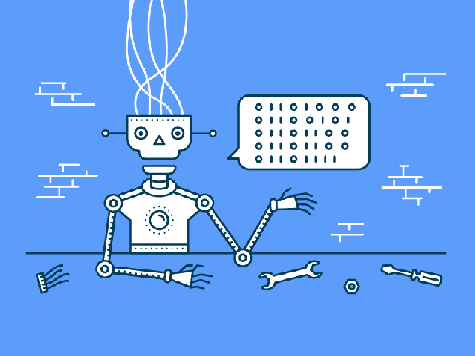STEM is for C students too, says report
- Joanne Jacobs

- Jun 13, 2018
- 2 min read

Young people can succeed in technical jobs even with mediocre grades in math and science or liberal arts majors, claims a new study, on the State of STEM by STEMconnector.
“Some students believe if they get a C in algebra then they can never pursue STEM, that STEM is only for the smartest of the smart,” author Erin White tells EdSource’s Carolyn Jones. However, “the most important skills in the workplace will be flexibility, critical thinking, communication, the ability to adapt quickly to change.”
You don’t have to be a genius to pursue a scientific or technical career, says Danika LeDuc, a Cal State East Bay chemistry professor and dean.
She’s had students earn Fs in her class, learn better ways to study, then re-take the class and earn Bs. She’s also had students struggle with classwork but excel in labs, or visa versa. Or switch from a major to a minor in science and go on to thrive in the STEM workplace or in graduate school. “I think people don’t realize that failure is a big part of science and engineering. That’s how you learn,” she said. “Sometimes you have to fail to move forward.”
The study calls for improving “science and math education for all students — especially those who are low-income or students of color — beginning in kindergarten,” writes Jones. In addition, educators and employers “need to look beyond a student’s major or grade point average when evaluating job applicants, and consider other skills that are valuable in the workplace.”
I am skeptical. Yes, it’s possible to fail, learn and improve. No, not all STEM professionals are geniuses. But I don’t believe employers will hire people with mediocre (or no) technical skills because they claim to be flexible or critical thinkers or communicators. They want highly skilled people who also are flexible, thinkers, etc.
I remember talking to a high-tech boss who was having trouble hiring engineers. I asked if he was lowering standards to fill jobs. He was not. He said it was better to have nobody than to hire someone who would screw up the work of colleagues.
Quality matters, writes Justin Baker.
In my story on how Silicon Valley schools are preparing first-generation students for high-tech careers, I talked to Patricia Villegas, who recruits contract workers for Google. She said it’s possible to get a job with a liberal arts major — and software skills. No skills, no dice.
Do me a favor. Follow the link, read the story and leave a comment. I hate it when there are no comments.






Comments